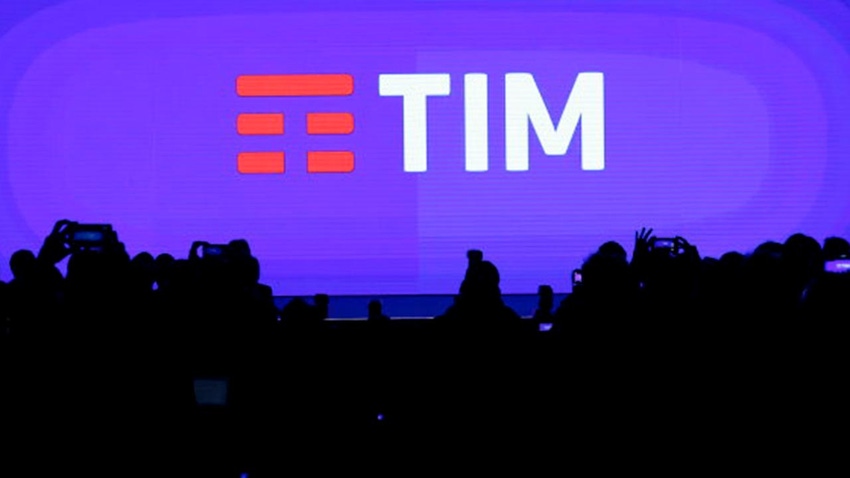De Puyfontaine resignation could bring Italy network plan closer
Vivendi CEO Arnaud De Puyfontaine has tendered his resignation from TIM's board of directors, a move that could help smooth the way for some sort of resolution in Italy's ongoing high-speed network debacle.
January 17, 2023

Vivendi CEO Arnaud De Puyfontaine has tendered his resignation from TIM’s board of directors, a move that could help smooth the way for some sort of resolution in Italy’s ongoing high-speed network debacle.
Not that there’s much to go on in TIM’s official announcement. The Italian incumbent makes it clear that De Puyfontaine’s departure is linked to the state network plan – or current lack thereof – but it’s not giving a lot away.
“In this phase of constructive dialogue between TIM’s main shareholders and the Institutions, under the new Government’s leadership, it is fundamental that all the relevant parties may be free to work in a constructive and transparent manner to the benefit of TIM and all its shareholders,” the telco said, in an English language statement, attributing the sentiment to De Puyfontaine.
“In this regard, Arnaud De Puyfontaine considers it appropriate to devote his effort, as Chief Executive Officer of Vivendi, to re-establishing a growth path for TIM and see to it that the real value of the Company and its unique network is properly recognized,” it added.
In recent months the new Italian government has essentially canned the previous administration’s plan to create a single, national high-speed network by merging TIM’s fixed assets with those of Open Fiber, the fibre builder in which state lender Cassa Depositi e Prestiti (CDP) holds a 60% stake. The Meloni-led government is now firmly in favour of the idea of a state-owned network to provide high-speed coverage nationwide, but it’s not especially concerned with how many network builders Italy will support. Essentially, the ‘single network’ element of the previous plan is no longer a consideration, as Adolfo Urso, Minister of Enterprises and Made in Italy, confirmed last week.
The various stakeholders involved in the creation of the new plan – and there are many, aside from TIM and its shareholders – are working on thrashing out the details. Clearly, as indicated in the TIM statement, De Puyfontaine believes progress will be easier without his involvement. Given that the statement concludes with the assurance that “TIM and Italy remain central to Vivendi’s investment plans,” it’s not rocket science to suggest that De Puyfontaine is to an extent protecting the value of his company’s shareholding here. TIM’s shares hit a six-month high of €0.26 on Monday, incidentally.
De Puyfontaine himself does not own any TIM shares, but Vivendi is the telco’s biggest individual shareholder with a stake of 23.75%, followed by CDP with just under 10%.
To put it bluntly, the presence of Vivendi’s in TIM’s shareholder structure is a thorn in the side of the Italian government, both this one and its predecessors.
The French firm’s view on the value of TIM’s network assets has been well-documented. While Vivendi has been bandying about figures around the €31 billion mark, CDP values the infrastructure at more like €20 billion, and figures as low as €15 billion-€18 billion have oft been mentioned as more realistic. The question of value was just one of the sticking points in the previous single network plan, but it was a big one, particularly bearing mind Meloni’s goal of renationalising the assets… while presumably not paying through the nose for them.
There’s also the question of Vivendi being, well, French. The issue of national security and the status of the TIM network as a strategic national asset still remains. It appears that the government will work with foreign players, but will not allow them to take a lead role.
All of which helps to explain why De Puyfontaine’s decision to leave the TIM board could help facilitate the new network plan, whatever its T&Cs might be.
Milano Finanza on Monday quoted analysts at Bloomberg Intelligence Unit as saying De Puyfontaine’s resignation comes after lengthy talks with the government and could indicate that Vivendi would be willing to accept the new network plan, even if that involves the sale of the TIM network at a price closer to the CDP valuation than that of the French firm.
Monday’s statement from Vivendi and TIM, peppered as it was with talk of the value of the network and of Vivendi’s ongoing desire to invest in the Italian telco, seems to run contrary to that idea. But as Milano Finanza points out, it could be that Vivendi is now focused on minimises losses rather than maximising profit.
Get the latest news straight to your inbox. Register for the Telecoms.com newsletter here.
About the Author(s)
You May Also Like








.png?width=300&auto=webp&quality=80&disable=upscale)


_1.jpg?width=300&auto=webp&quality=80&disable=upscale)


.png?width=800&auto=webp&quality=80&disable=upscale)